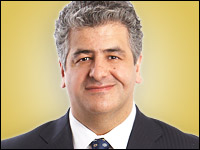
In a highly anticipated ruling, the U.S. Federal Communications Commission (FCC) declared on Tuesday that Voice over Internet Protocol (VoIP) services are subject to the exclusive jurisdiction of the federal government. The five-member panel unanimously decided that VoIP services are interstate in nature and therefore out of the regulatory reach of individual state telecommunication regulatory bodies.
The ruling is in response to a petition by a New Jersey-based company called Vonage, which requested that the FCC preempt attempts by the Minnesota Public Utilities Commission (MPUC) to classify VoIP as an intrastate service and subject it to traditional public utility regulation and tariffs.
Vonage’s dispute with the MPUC began late last year when the MPUC issued an order requiring Vonage to become certified as a common telephone carrier. The company brought a lawsuit in the U.S. District Court to prevent the MPUC from enforcing its order.
Information Service
The Court found in favor of Vonage, holding that VoIP is exempt from state regulation since it is an information service as opposed to a telecommunications service. The MOUC appealed the decision, and oral arguments for the appeal were expected to take place this month.
Following the Minnesota decision, a similar ruling was issued in New York, where the New York Public Utilities Commission (NYPUC) had also attempted to classify Vonage as a telephone company. The U.S. District Court in that state ruled that although the NYPUC can handle customer complaints, it is not permitted to regulate or tax Vonage.
In the Tuesday ruling, the FCC rejected the notion of dual state and federal regulatory regimes. The FCC found that it would not be practical to separate Vonage’s VoIP service into interstate and intrastate components since customers can call from a broadband connection anywhere in the world, making it difficult to determine whether the call is local, national or international.
Another key factor in the decision was the FCC’s policy of promoting the growth of Internet and broadband services; the FCC stated that by curbing the high cost of regulation, it would be able to provide customers with greater choice and innovation.
Other Issues
However, the FCC did not address other issues of concern to the VoIP industry. In its petition, Vonage had asked the FCC to determine if VoIP should be classified as an information service under the Communications Act or as a telephone service.
The FCC stated that this issue will be addressed in its ongoing IP-enabled Services Proceeding, along with the question of whether Vonage and other VoIP providers must provide access to the disabled, pay intercarrier compensation, and contribute to the universal service fund. It also declined to decide on whether states would be able to apply tariffs to the service.
This decision goes a long way in establishing the argument that VoIP providers are not traditional telecommunication carriers that can be subjected to local regulations. As outlined by FCC Chairman Michael Powell, to subject a global network such as VoIP to disparate state regulatory regimes “would be to destroy the very qualities that embody the technological marvel that is the Internet.”
Javad Heydary, an E-Commerce Times columnist, is a Toronto lawyer licensed to practice in both Ontario and New York and is the managing editor of Lawsof.com.






















































Social Media
See all Social Media